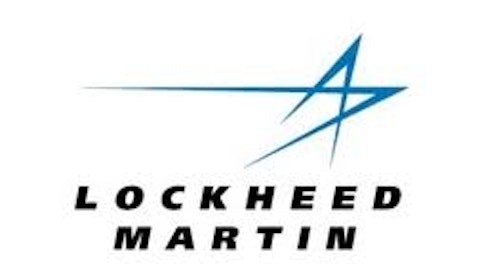
Last week, the government of Australia published its defense budget (actually, they called it a “defence budget“) for fiscal 2013-2014. In it, investors can find a number of items that suggest U.S. companies have significant revenue opportunities in Australia.
The big picture
Viewed in the context of the $523 billion that the U.S. Department of Defense requested as its base budget for fiscal 2013 — or the even greater sum it’s likely to spend — Australia’s 2013-2014 probably looks like small potatoes. According to the local Department of Defence, Australia has allocated $25.3 billion to defense in fiscal 2013-2014, but this number is growing. (There’s very rough parity between the Australian dollar and the U.S. dollar, by the way. The exchange rate literally varies by about a couple of cents.)
In the 2016-2017 fiscal year, Australia expects to spend some $30.7 billion on defense — a 21% increase in just three years. And the numbers get even bigger the farther out you look. In the country’s “Budget Forward Estimate” for the six years running from 2017-2018 through 2022-2023, spending on defense is expected to swell to $36.7 billion annually, on average. That’s a number 45% bigger than what the country plans to spend next year.
The nearer term
Defense industry investors needn’t wait for 2023 to roll around to see increases in Australian defense spending, however. In fact, Australia says that by “reprofiling” its funding, it’s already managed to dig up a total of $1.05 billion extra dollars (that’s about $1.03 billion USD) to spend on its military over the next six years.
Who gets the loot?
Now for the big question affecting investors: Who, up here, is likely to benefit from all this spending Down Under?
With the caveat that nothing’s set in stone, judging from the contents of the published budget, here are a few of the likely winners:
Austal: Partnered with General Dynamics Corporation (NYSE:GD) in building one version of the U.S. Littoral Combat Ship coastal warship, Austal is also the prime contractor building Australia’s own Armidale-class patrol boats. Australia plans to begin early replacement of this boat class, and as the incumbent producer, Austal has to be considered the lead candidate to build the next big thing.
The Boeing Company (NYSE:BA): Australia has budgeted $2.9 billion to purchase a dozen new EA-18G Growler electronic warfare aircraft from The Boeing Company (NYSE:BA), hedging against the risk that complications in the program will force Lockheed Martin Corporation (NYSE:LMT) to be tardy in delivering more advanced F-35 fighter jets that Australia has on order.
Lockheed Martin Corporation (NYSE:LMT) and Raytheon Company (NYSE:RTN): Lockheed Martin Corporation (NYSE:LMT) may not be totally out of luck, however. Another big-budget project in the works Down Under is a planned C-band space radar installation at the Harold E. Holt naval communication facility in Western Australia. Australia plans to jointly operate the installation with the U.S., aiming to establish a virtual space “fence” that will track debris orbiting the earth, in order to avoid mid-orbit collisions with our spacecraft. In total, this project is expected to cost upwards of $6.1 billion over its lifetime. Both Lockheed Martin Corporation (NYSE:LMT) and Raytheon Company (NYSE:RTN) are bidding to help build it.
And the best part? Because the space radar installation is jointly operated by the U.S., you know Lockheed Martin Corporation (NYSE:LMT) and Raytheon Company (NYSE:RTN) have a shot at aerospace contracts drawing from a budget 20 times richer than what Australia can afford to spend.
The article Defense Contractors See Profits Down Under originally appeared on Fool.com and is written by Rich Smith.
Motley Fool contributor Rich Smith has no position in any stocks mentioned. The Motley Fool owns shares of General Dynamics, Lockheed Martin, and Raytheon Company.
Copyright © 1995 – 2013 The Motley Fool, LLC. All rights reserved. The Motley Fool has a disclosure policy.

